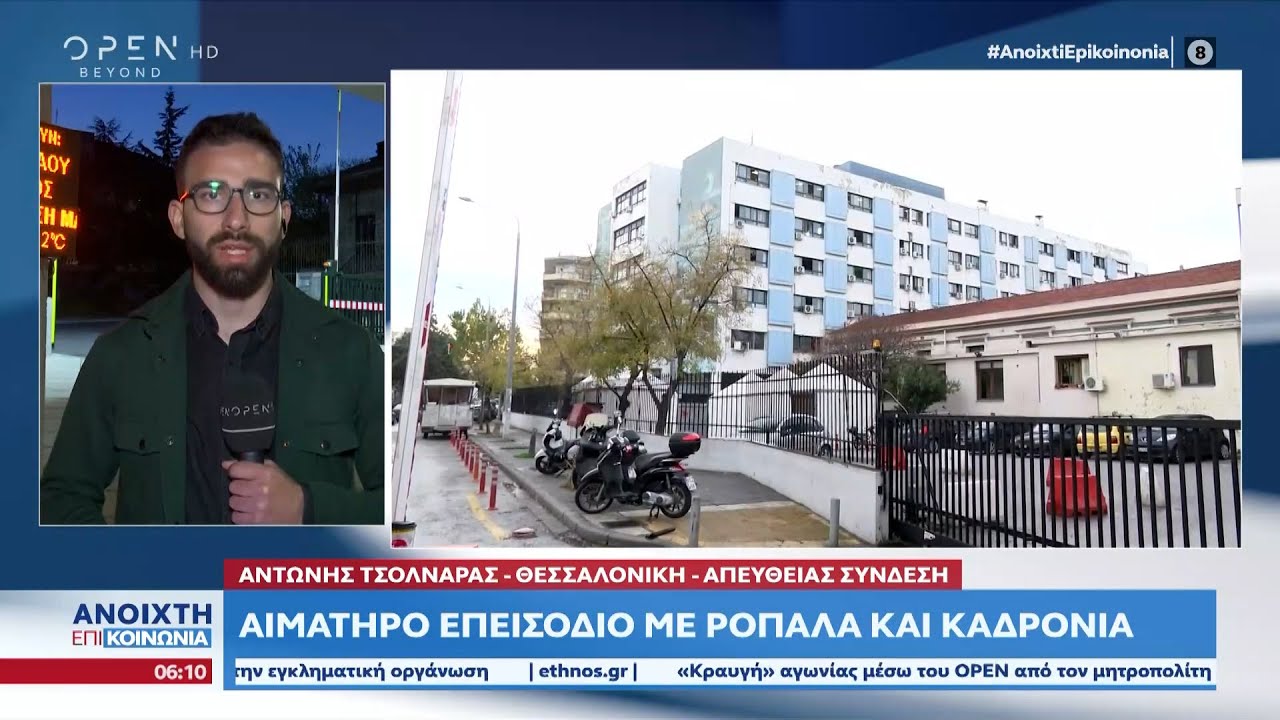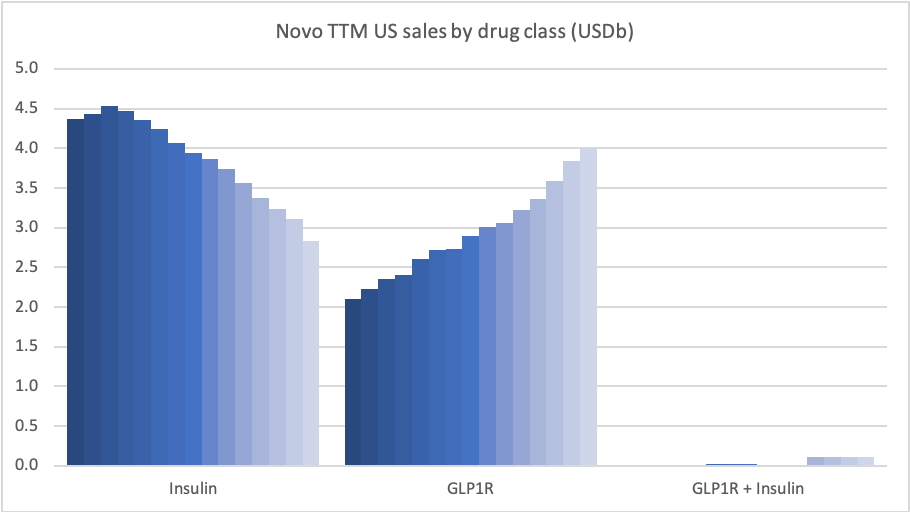FTC Probe Into OpenAI And ChatGPT: A Deep Dive

Table of Contents
The FTC's Focus: Unfair or Deceptive Practices by ChatGPT
The FTC's authority stems from its mandate to prevent unfair methods of competition and unfair or deceptive acts or practices affecting commerce. In the case of OpenAI and ChatGPT, the investigation likely focuses on several potential areas of concern:
-
Bias and Discrimination: ChatGPT's responses are trained on massive datasets, which may reflect existing societal biases. This can lead to discriminatory outputs, perpetuating harmful stereotypes based on race, gender, religion, or other protected characteristics. The FTC will scrutinize whether OpenAI adequately addresses and mitigates these biases.
-
Misinformation and the Spread of False Information: The ability of ChatGPT to generate convincing but entirely fabricated content raises serious concerns about the spread of misinformation and disinformation. The FTC will likely investigate whether OpenAI has implemented sufficient safeguards to prevent the misuse of ChatGPT for malicious purposes, such as creating and disseminating fake news or propaganda.
-
Data Privacy Violations: ChatGPT's operation involves the processing of vast amounts of user data. The FTC will examine OpenAI's data privacy practices, ensuring compliance with relevant regulations like the FTC Act and other applicable federal and state laws. This includes investigating the collection, storage, use, and sharing of user data, and whether OpenAI obtains informed consent and provides adequate transparency.
-
Lack of Transparency: The inner workings of ChatGPT's algorithms are largely opaque. The lack of transparency surrounding how ChatGPT generates its responses raises concerns about accountability and the potential for unintended consequences. The FTC's investigation will likely assess OpenAI's level of transparency regarding its algorithms and decision-making processes.
OpenAI's Response and Potential Defenses
OpenAI has acknowledged the FTC investigation and stated its commitment to cooperating fully. Potential defenses OpenAI might employ include:
-
Ongoing Efforts to Mitigate Bias and Improve Safety Features: OpenAI continuously updates its models and implements safety measures to address bias and improve the accuracy and safety of ChatGPT's outputs. They may highlight these ongoing efforts as evidence of their commitment to responsible AI development.
-
Measures Taken to Protect User Data and Privacy: OpenAI may present evidence of its data protection measures, demonstrating compliance with relevant regulations and industry best practices. This might involve highlighting anonymization techniques, data minimization strategies, and robust security protocols.
-
The Inherent Limitations of AI Technology: OpenAI could argue that achieving perfect accuracy and eliminating all biases is an inherently challenging task, given the complexity of AI technology. They might emphasize the ongoing research and development efforts aimed at overcoming these limitations.
The Broader Implications for the AI Industry
The OpenAI FTC investigation sets a crucial precedent for the entire AI industry. The outcome could significantly influence how AI companies develop, deploy, and regulate their AI systems. This includes:
-
Increased Regulatory Scrutiny: The investigation is likely to trigger more stringent regulatory oversight of AI technologies, potentially leading to new laws and regulations aimed at addressing the ethical and societal implications of AI.
-
Impact on Innovation: Increased regulation may slow down the pace of AI innovation, but it could also lead to the development of more responsible and ethical AI systems.
-
Implications for Investors and Consumers: The outcome of the investigation will influence investor confidence and consumer trust in AI technologies. Clearer regulations could ultimately create a more stable and trustworthy AI ecosystem.
This case also has international implications, as other countries are developing their own AI regulatory frameworks. The FTC's actions will be closely watched by regulators globally.
Ethical Considerations and Future of AI Regulation
The FTC Probe into OpenAI and ChatGPT underscores crucial ethical dilemmas surrounding AI:
-
Responsibility for Inaccurate or Harmful Information: Determining who is responsible when AI generates inaccurate or harmful information remains a complex legal and ethical challenge.
-
Malicious Use of AI: The potential for AI to be used for malicious purposes, such as generating deepfakes or spreading misinformation, necessitates careful consideration of safeguards and ethical guidelines.
-
Transparency and Accountability: Increased transparency and accountability in AI development are essential to fostering trust and mitigating potential risks. This includes clear guidelines on data usage, algorithmic transparency, and mechanisms for redress.
The future of AI regulation will likely involve a multi-faceted approach, combining self-regulation by AI companies, government oversight, and collaborative efforts between stakeholders. Best practices for responsible AI development must prioritize safety, fairness, transparency, and accountability.
Conclusion: The Future of the FTC Probe into OpenAI and ChatGPT and its Ramifications
The FTC probe into OpenAI and ChatGPT is a landmark investigation with far-reaching implications. Its outcome will significantly shape the future of AI regulation and influence how companies develop and deploy AI technologies. The investigation highlights the crucial need for responsible AI development, emphasizing transparency, accountability, and the mitigation of biases and risks. The investigation will undoubtedly continue to unfold, and staying informed about its progress and related developments in AI regulation is critical. For further information, we recommend following updates from the FTC and exploring resources from organizations focused on AI ethics and regulation. The future of AI hinges on addressing the concerns raised by this OpenAI FTC investigation and embracing responsible innovation. Understanding the developments in ChatGPT regulation and broader AI ethical considerations is vital for both individuals and the industry as a whole.

Featured Posts
-
 Live Now Pay Later A Comparison Of Top Providers
May 30, 2025
Live Now Pay Later A Comparison Of Top Providers
May 30, 2025 -
 Ti Na Deite Stin Tileorasi Tin Tetarti 23 4
May 30, 2025
Ti Na Deite Stin Tileorasi Tin Tetarti 23 4
May 30, 2025 -
 Djokovic Gauff And Andreeva Win At Roland Garros
May 30, 2025
Djokovic Gauff And Andreeva Win At Roland Garros
May 30, 2025 -
 Sierra Leone Fallout Following Immigration Chiefs Dismissal
May 30, 2025
Sierra Leone Fallout Following Immigration Chiefs Dismissal
May 30, 2025 -
 Novo Nordisks Ozempic A Market Share Analysis In The Weight Loss Sector
May 30, 2025
Novo Nordisks Ozempic A Market Share Analysis In The Weight Loss Sector
May 30, 2025
